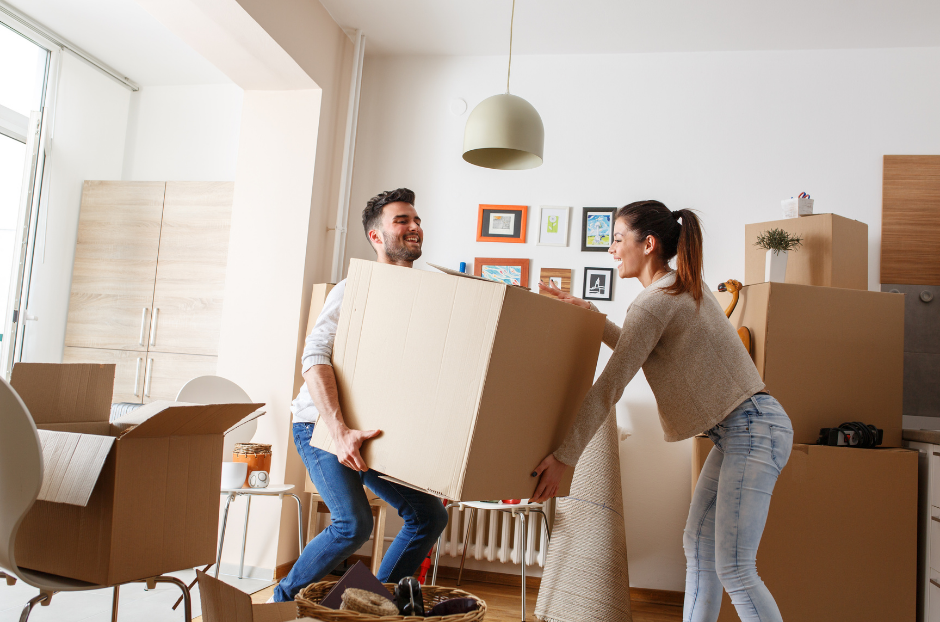How to avoid the unexpected costs of moving
Now that you’ve de-cluttered your home, packed everything you own into boxes and donated or sold what you don’t need you’re well on your way to moving day.
As you go to book your moving van you might get a shock combing through quotes at just how expensive moving costs can be. As well as the costs of hiring movers and cleaners to help leave your old home behind there are the costs of moving in, connecting amenities and redirecting mail.
Rather than getting caught up in unexpected moving costs, we’re giving you a heads up on what to be careful of, what to avoid and where you can make smart choices, so you know where you stand and what to watch out for.
Insurance for damage
Read the terms and conditions of the moving contract carefully to determine in what instances damage is covered during the move. Your home and contents insurance might also cover your home contents in transit, it’s a good idea to have a clear picture of what is covered and what the terms are before you load up so you can quickly and easily settle any issues as soon as you arrive. You may find that your home insurance will cover contents that are damaged in transit by professional movers but not if you are moving them yourself.
It’s a good idea to research your moving company carefully and go over testimonials to know if they look after the items well. Even then accidents can happen and replacing a damaged item can not only be expensive, but it can also cost you time and stress you just don’t need right now.
Good packing techniques will help avoid problems as well as taking the time to strap any loose items down, that includes last minute items like the vacuum. Remember that heavier items will be more prone to moving around, not less as they will take longer to become stationary if you come to a sudden stop.
Make sure all your moving boxes are secure, none are too heavy, and you have a good mix of soft items (towels and blankets) with fragile items.
Another go-to is to use your car rather than a truck for transporting more difficult items, just make sure they are well secured.
Cleaning
Cleaning costs can be high for both renters and homeowners. For those leaving a rental property, there is an expected standard you have to live up to if you want your bond back (and a good rental record going forward). Steam cleaning carpets is a must. Most real estate agents will provide a cleaning checklist but it’s also well worth going over the terms and conditions of your lease agreement with plenty of time to spare (i.e. weeks in advance) to see what items you may have overlooked, like the oven, light fittings, spot-free walls and bathroom mould.
Allow plenty of time for cleaning up. Amid the rush of packing and moving it can be easy to misallocate cleaning time. It takes hours and hours to clean yourself and it can be stressful trying to get it all done and get the keys back on time.
Hiring a professional cleaner is an expense you might like to budget ahead of time. As well as knowing the right places to look they will usually bring their supplies which are tried and proven against the worst kind of stubborn stains. Provide your possible cleaning agents with a checklist of items to get an accurate quote on services. If you find you need to call in a cleaner at the final hour you can end up paying a lot more and possibly still not measuring up with your landlord.
For homeowners, you will likely be renting or selling your property in which case it needs to be spotless with steam cleaned carpets and scrubbed walls.
Moving with pets
Moving time is stressful for pets who lose their sense of security the more you pack and clean. In many cases, it’s best to put them into a kennel or boarding house while you move and possibly even while you house hunt. You need to factor in up-to-date vaccinations with the vet (check in advance at the boarding house on what the requirements are). If you are moving long-distance you will need a safe and comfortable transport for them which might including making a special trip just for them once you are settled. You may find that hiring or buying pet cages or car harnesses are the safest transport methods, especially for animals not used to transport as they may scurry under your legs (under and onto foot pedals) trying to find comfort. Also, note that a pet on a lap can get very hot and stressed so it isn’t a great option for long-distance travel.
Pets left with friends and family may also cause problems and expenses if they are restless or anxious without you. Anxious pets are known to destroy furniture, forget they are house trained or bark or howl continually, causing problems with neighbours and possibly even police involvement. If you can’t be with your pet all the time a professional boarding establishment is a better option as they are isolated properties with trained staff.
While you are packing up and preparing to leave it’s not uncommon for pets to act up, eat things they shouldn’t and go to the toilet inside. Keep your pet feeling safe by providing a room they can escape to with their bed and toys. Give them regular walks, take the time to comfort and reassure them or send them off for a pet holiday if things are getting out of hand.
Last-minute purchases
The last thing you want to do when you are clearing out and packing up is getting more stuff…but it happens. You realise there are things you need, cleaning equipment, extension cords, tools for modifying your new home to make it safe or your kids or to install shelves for your hobby collection. If you are upsizing the amount of furniture your need can be surprising. If you were sharing and are now going solo kitchen gear, washing machine and a TV might be on your shopping list. It can be incredible how much you have taken for granted living in a place that was previously furnished, or semi-furnished.
Second-hand shopping can be really rewarding, especially on a budget but the more time you give yourself the more flexible you are about saying no to the items that aren’t perfect and waiting it out. You will also need to budget time into the equation with trips to view items from Gumtree or Facebook before you collect them. Having storage can help during the transition period as well.
Decor and set up
Your setup for your previous home was perfect, now it doesn’t fit your new style at all. Furniture that is too big, too small, or just not a good look can make for an unexpected expense as you work to make amends.
Measuring your rooms and bulky furnishings and creating a floor plan to scale can help you design the right layout without having to shove actual furniture pieces around.
Cushion covers can be a great way to change the feel of your space without spending a lot of money. Covering couches with throw rugs can also go a long way to helping smooth over space, at least temporarily while you recover from the move.
Fitting out a guest room can also be expensive if you haven’t put aside funds for extra bedding, towels and a quality mattress.
The real problem with these expenses is when they catch you unaware. When you plan for them it can be a smooth, even enjoyable experience. Make sure you start your move as early as possible (I’m not kidding, six months out is a great place to start) and take into account as many peripheral things as you can so you know what you are up against. If surprises do come along, and they might have some savings you can dip into and always be okay about asking for help from friends and family. They might be able to loan you furniture, walk your dog or cook a meal for you while you find your feet.



